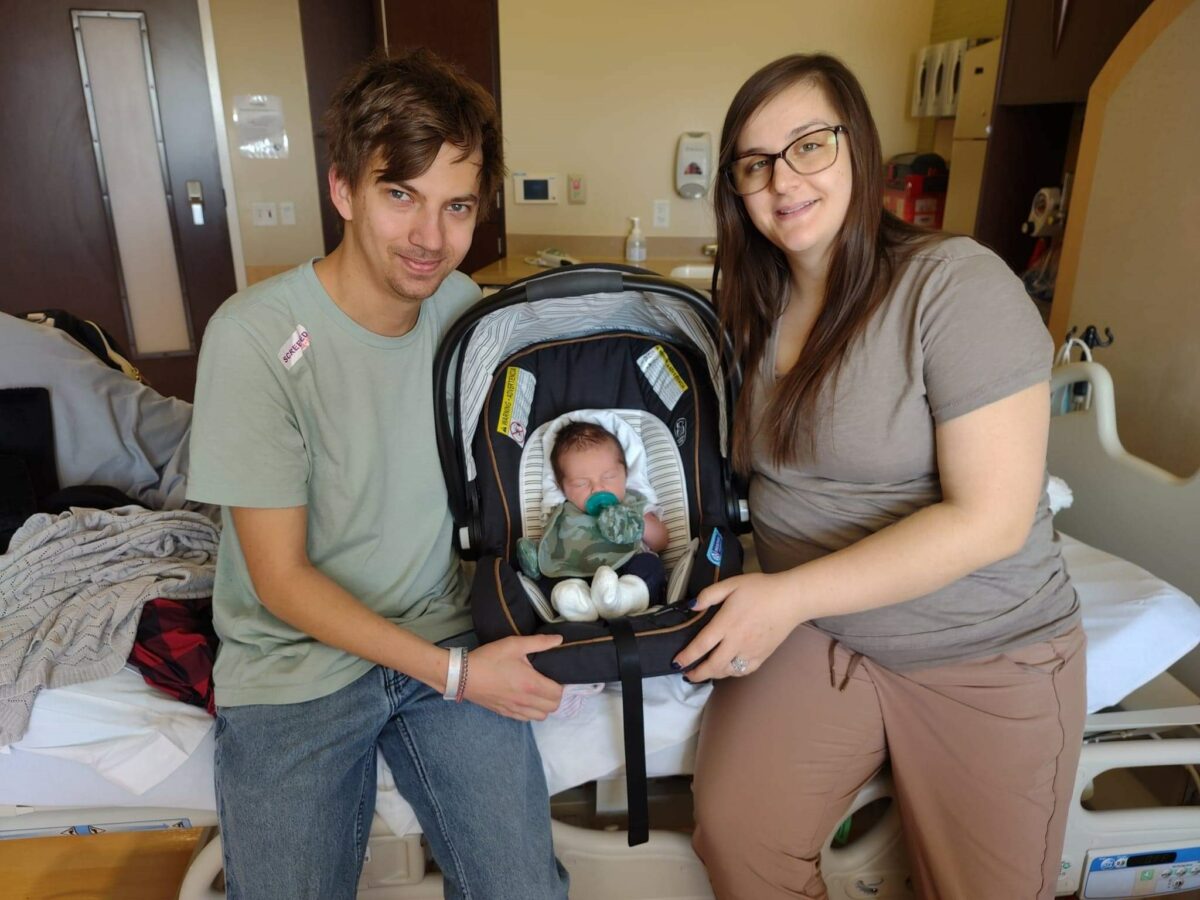Did you know that approximately 15% of women are Rh negative? This means that during pregnancy, moms-to-be can experience serious complications.
When the fetus’s blood has the Rh factor and the mother’s blood does not, the mother may develop antibodies to a Rh-positive baby. If a small amount of the baby’s blood mixes with the mother’s, which happens often, the body may respond as if it were allergic to the baby.
If this occurs, the child may develop anemia or other health problems that can become severe enough to cause serious illness, brain damage, or even death. Rho(D) immune globulin (RhIG) is a commercial medication derived from human plasma used to manage and treat Rh-negative pregnancies. This breakthrough product is injected into the mother during her pregnancy to prevent Rh-related issues.
One new Omaha mom’s family history with this condition led her to become a regular plasma donor. Jade Olson’s grandmother was Rh negative and had many complications with her first two pregnancies. Improvements in modern medicine and the availability of plasma therapies supported her third pregnancy, bringing Jade’s mother into the world. Jade’s mother then went on to have successful pregnancies powered by plasma therapies as well.
While plasma donations are crucial for producing RhIG, which helps prevent complications in Rh-negative pregnancies, it’s important to note that pregnant women are not eligible to donate plasma.
“I would not be here today, if people did not donate plasma,” said Jade. The Omaha-native recently gave birth to her first son, Anakin, and luckily the gene was not passed down to her, so RhIG treatment was not needed.
In her first month as a mom, she is especially excited for this Mother’s Day. “My son has truly changed my life. I never thought that changing diapers and getting thrown up on was something that I would enjoy, but being a mother is truly an amazing experience. That is why I donate plasma. I want to do whatever I can to help another woman with their birth story.”
Jade is also an Octapharma Plasma employee and, prior to that, worked as an EMT and paramedic. She knows a lot about saving lives and the importance of plasma donations for additional emergencies, such as burn or trauma patients. She works to raise awareness for this condition and advocate for more plasma donations in support of the many women who have been personally impacted by Rh negative complications.
Jade estimates that about 25% of Octapharma Plasma employees consider themselves to be “regular plasma donors,” and almost all of them have donated plasma before. We at Octapharma Plasma are incredibly proud of all our employees and especially those, like Jade, who choose to donate on a regular basis.
With the help of dedicated plasma donors, millions of Rh-negative mothers and their babies have been protected against potential complications, thanks to the availability and use of lifesaving plasma therapies.
For more information about a plasma donation center near you, please visit the link below. For more information about Rh-negative pregnancies, please speak to your OBGYN and ensure you are receiving the appropriate prenatal care and tests.
Find Your Plasma Donation Center
Sources:
https://americanpregnancy.org/healthy-pregnancy/pregnancy-complications/rh-factor/







